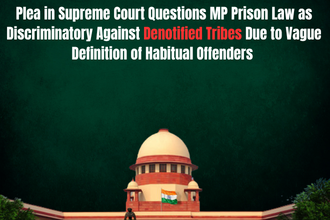In a significant development underscoring the priority of national security, the Delhi High Court on Saturday refused to entertain a petition filed by a Pakistani national seeking a long-term visa in India. The case, titled Sheena Naz and Anr vs Union of India and Ors, highlights the judiciary’s deference to executive decisions when national security concerns are involved.
Background of the Case
Sheena Naz, a Pakistani citizen married to an Indian citizen, had applied for a long-term visa (LTV) on April 23, 2025. Her residential permit, granted earlier, was valid from March 26 to May 9, 2025. However, in the wake of the tragic Pahalgam terror attack, the Indian government suspended visa services for Pakistani nationals on April 24. Along with this, a directive was issued for Pakistani citizens currently residing in India to leave by April 27.
Faced with the imminent suspension of her permit and the larger policy change, Naz approached the Delhi High Court seeking two main reliefs:
- Consideration of her long-term visa application.
- Protection from the suspension of her existing residential permit.
Court Proceedings
The matter was heard by Justice Sachin Datta in a special hearing convened on Saturday, April 26. Representing the petitioner were Senior Advocate Sanjeev Sagar, supported by advocates Zahid Hanief, Shazia Kidwai, and Nazia Parveen. The Union of India was represented by Central Government Standing Counsel Nidhi Raman along with advocate Arnav Mittal.
Justice Datta, after examining the arguments, ruled that the Union Government’s decision could not be subjected to judicial review, especially when it was rooted in “serious national security considerations.” Citing Section 3(1) of the Foreigners Act, 1946, the Court emphasized that the government has the authority to regulate the entry and stay of foreigners in India, particularly during times of heightened security threats.
The Court stated:
“Prima facie, the aforesaid order issued under Section 3(1) of the Foreigners Act, 1946 does not warrant any judicial review given that the issuance of the same was impelled by serious national security considerations. It is also not within the province of this Court to carve out any exception(s) thereto.”
Acknowledging the Court’s inclination to dismiss the plea, the petitioner’s counsel opted to withdraw the petition. Accordingly, the petition was dismissed as withdrawn, and all pending applications were disposed of.
Legal Perspective: National Security and Judicial Review
The case reaffirms an important principle in constitutional law: matters involving national security are given considerable deference by the judiciary. Courts generally refrain from interfering with executive actions taken in the interest of the country’s safety, except in cases of evident arbitrariness or mala fide intent.
Section 3(1) of the Foreigners Act, 1946 empowers the Central Government to make orders regulating the entry, presence, and departure of foreigners within India. This broad power includes issuing directives based on national security concerns without necessarily providing individual hearings or exceptions.
The Delhi High Court’s decision reflects this established legal position, recognizing that in times of terror threats or national emergencies, individual interests must yield to collective security.
Implications of the Decision
The judgment has wide implications for foreign nationals residing in India, especially those from countries that have strained diplomatic relations with India. It sends a strong message that security considerations will outweigh personal circumstances, even those involving family ties to Indian citizens.
Additionally, it underlines the importance for foreign nationals in sensitive situations to remain abreast of changing government policies and prepare for sudden shifts in immigration status based on external events.
The Pahalgam Terror Attack Connection
The government’s decision to suspend Pakistani visas came immediately after the Pahalgam terror attack, an incident that shook the nation and led to a comprehensive security review. In such circumstances, swift administrative actions, including visa suspensions, are not uncommon.
The linkage between the administrative order and the terror attack further strengthened the government’s position that the suspension was not arbitrary but a necessary response to a pressing threat.
Broader Context: Indo-Pakistani Visa Policies
Visa policies between India and Pakistan have long been restrictive, often influenced by prevailing political and security climates. Even under normal circumstances, Pakistani nationals face extensive background checks, and applications are subject to multiple layers of scrutiny.
After high-profile terror incidents or diplomatic confrontations, visa services are often suspended or heavily curtailed. The Sheena Naz case is another example of how security events can directly impact the mobility and rights of foreign nationals, especially from neighboring countries with tense bilateral relations.
Conclusion
The Delhi High Court’s refusal to entertain Sheena Naz’s plea underscores a critical balance that democracies must maintain: safeguarding individual rights while ensuring national security. Justice Sachin Datta’s judgment highlights the judiciary’s recognition that during periods of heightened threat, executive decisions aimed at protecting national interest must be given precedence, even at the cost of individual hardships.
As security threats evolve and diplomatic relations fluctuate, similar cases are likely to surface, reiterating the principle that when it comes to national security, the government’s prerogative will generally hold sway in Indian courts.


